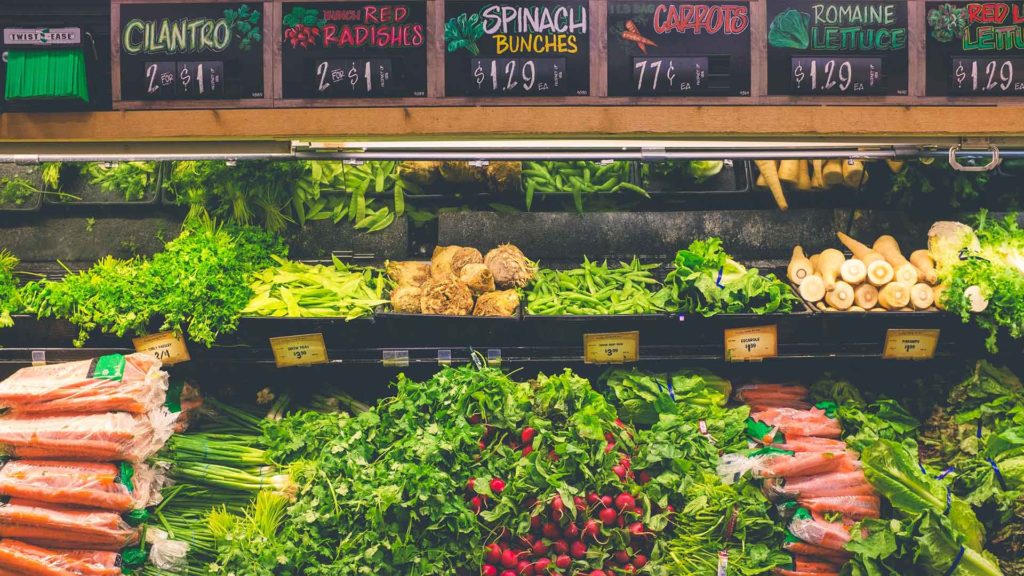
5 Ways To Reduce Grocery Costs and Boost Sustainability
Life under quarantine has its marks on different parts of our life, grocery shopping is one of them. One of the effects of this situation is an increase in grocery shopping and costs. There are a few reasons for this and this blog will focus on how to reduce the cost of it during quarantine times and after that, and boost sustainability, creating a win-win for your health, your pocket, and the planet. The more eco-friendly and sustainable you can be, the more money you can also save on your grocery costs. Here are 5 ways to reduce grocery costs, increase your health and boost sustainability:
1. Grow Your Own
One of the best ways to save money and go greener is to grow your own. Growing at least some of your own food can make a big difference. Even if you do not have your own outside space, you can create an indoors container garden on a very small budget, and with little time and effort. The more you are able to grow organically at home, the more sustainable your life will be and the more money you will be able to save.
2. Plan, Prepare – Buy Less
Being informed and prepared is key to sustainable and affordable food shopping. To reduce grocery costs and boost sustainability you should:
- Make lists and stick to them (or get a personal cook to shop for you, to eliminate impulse buying).
- Do grocery shopping on a full stomach after having a snack or a meal.
- Order groceries online, another way to reduce impulse buying and stay safe during Coronavirus pandemic. I learned from my experience that my grocery cost is half when I buy online vs. walk in the store.
- If you have to go to the store, go alone, it’s safer and you will buy less. I noticed that if I walk into a store by myself, I end up buying double of that I would buy online. If the kids or my hubby join me, we buy about 3 times more, and if we all go together it can get to +4 times more. Linear or exponential, the trend is clear, the more people go grocery shopping together, the longer time you stay at the store, the more you will overbuy.
- Carry your own reusable bags (and carry them yourself – as this could reduce over-buying). Or bring the groceries to the car and bag it in the trunk.
- Consider making an eco-friendly choice and buying and eating more plant-based. Even 5% or 10% improvement makes a huge difference, on your cost and on the planet.
Foodom’s meal prep service offers busy families a convenient and affordable way to enjoy personalized, healthy meals while also promoting sustainability. By reducing food waste, minimizing packaging waste, sourcing local and sustainable ingredients, and encouraging healthy eating habits, Foodom helps families adopt a more environmentally friendly lifestyle. With Foodom, families can enjoy delicious meals while making a positive impact on the planet.
3. Buy Better
Since you will be buying less overall, you can make your grocery shop more sustainable. Rather than concentrating on buying more – buy better. Try to choose:
- Local produce, grown as close to home as possible. (To reduce food miles and your carbon footprint.)
- Seasonal, organically grown whole foods. Foods you can cook from scratch, rather than over-packaged processed foods.
- If you are eating meat, fish or dairy, avoid factory farmed examples and prioritize local, sustainable options.
4. Don’t Be a Food Snob
When you are shopping for food, don’t be a food snob! To save money and go greener, you should not be put off by what food looks like. Consider buying ‘ugly’ fruits and vegetables. They may be lacking in visual appeal, but are just as healthy and nutritious as the perfect, photogenic examples. Also, while it is generally a more sustainable option to choose plastic-free food, you should not forget that frozen food is not all bad. Frozen fruits and vegetables can be cheaper, and are just as nutritious as the fresh food you can buy, sometimes even more.
5. Make Food Go Further
Finally, you can save money on your grocery bills and boost sustainability by making the food you have go further. Methods to do so might include:
A. Make batch meals and make full use of all your leftovers. If you are busy and don’t have time, hire a chef on Foodom to meal prep weekly to take this task of your to do list.
B. Use all parts of the food you purchase, including the stems, peels and ends, like this broccoli post.
C. Bulk out meals including fresh fruits, vegetables and herbs with low-cost staples such as sustainable grains and pulses.
These are just some ways to make your food budget go further while reducing your impact on our planet during and after Coronavirus pandemic.


